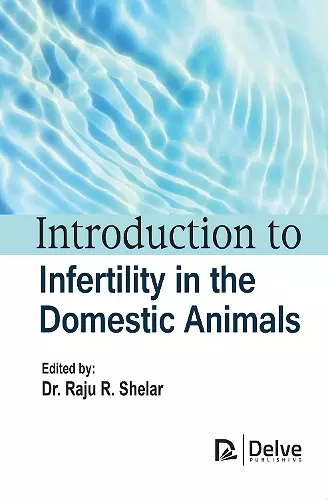Introduction to Infertility in the Domestic Animals
Format:Hardback
Publisher:Arcler Press
Published:31st Mar '24
Currently unavailable, our supplier has not provided us a restock date

Reproduction is a vital component in the animal husbandry practices. Infertility is a significant concern in domestic animals, as it can impact breeding programs, animal productivity, and the overall health of animal populations. Infertility in domestic animals refers to the inability of an animal to reproduce successfully, either by conceiving, carrying a pregnancy to term, or giving birth to healthy offspring. It can also affect various species of domestic animals, including cattle, horses, sheep, goats, pigs, dogs, cats, and more. It is a significant concern for animal breeders, farmers, pet owners, and veterinarians, as it can have economic, emotional, and practical implications. Infertility can have various causes, including genetic, anatomical abnormalities, age, physiological, endocrine disruptions, nutrition, infections and diseases, environmental, and management factors. Some animals may inherit genetic traits that can lead to reproductive problems, such as structural abnormalities or hormonal imbalances that affect their fertility. Physical abnormalities in the reproductive tract, such as uterine malformations or blocked fallopian tubes, can prevent successful conception and pregnancy. The age of the animal can impact fertility. Older animals might experience reduced reproductive capacity due to changes in hormonal balance and overall health. In females, conditions such as ovarian cysts, uterine infections, and blocked fallopian tubes can lead to infertility. In males, problems like low sperm count, poor sperm motility, and anatomical abnormalities can contribute to infertility. Hormonal disorders, like those affecting the thyroid or reproductive hormones, can disrupt normal reproductive cycles and processes. Exposure to endocrine-disrupting substances, like certain pesticides or pollutants, can interfere with hormonal regulation and reproductive function. Inadequate or imbalanced nutrition can impact an animal's reproductive health. Both under nutrition and excess nutrition can lead to fertility issues. Certain infections, such as sexually transmitted diseases or reproductive tract infections can directly affect reproductive organs or disrupt hormonal balance, leading to infertility. Environmental conditions can have a significant impact on reproductive success. Stress, extreme temperatures, poor housing conditions, and exposure to certain chemicals or toxins can negatively affect fertility. Improper breeding practices, such as overbreeding, or inadequate timing of mating or AI, can lead to reduced fertility. Infertility diagnosis in domestic animals involves a combination of physical examinations, clinical evaluation, reproductive history, and various diagnostic tests, such as hormone level assessments, ultrasound imaging of reproductive...
ISBN: 9781774698372
Dimensions: unknown
Weight: 272g
255 pages